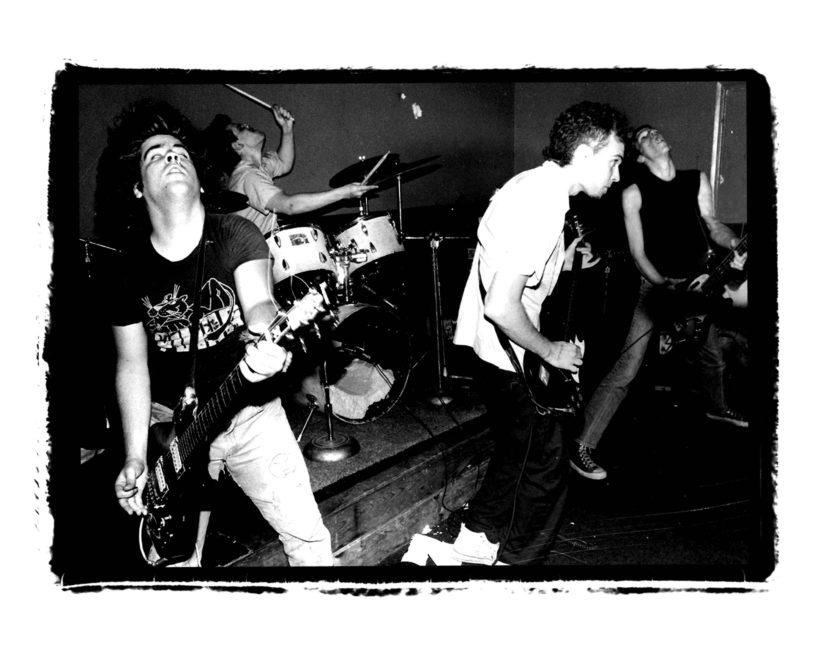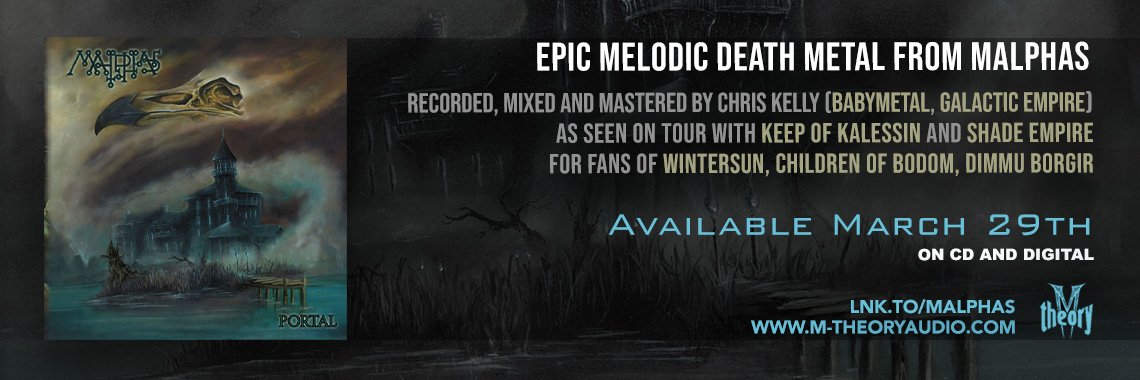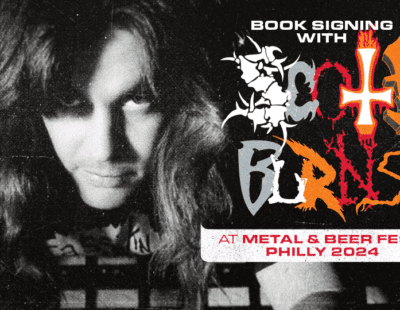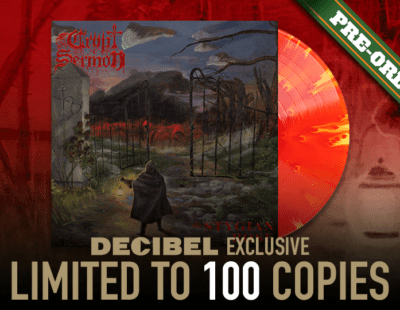
With so much extreme and underground music these days shooting for the speed of a melting glacier (actually glaciers melt fast now but you get the point) it’s downright nostalgic to remember the days when speed was the thing in underground music and giants like the formative Bad Brains walked the earth. One band that went all in on speed and beyond was New Jersey’s Adrenalin O.D. While they were ungodly fast – some say the fastest – their work was also clever, socially critical, self-deprecating, and beyond their peers. AOD’s magnum opus Humungousfungusamongus is still one of the speed Bibles and despite getting older AOD can still play these songs.
AOD drummer Dave Scott Schwartzman’s upcoming book If It’s Tuesday This Must Be Walla Walla: The Wacky History of Adrenalin O.D. (due October 31) gets into the story of AOD and hardcore’s formative years. He talked to Decibel about writing it and becoming the world’s fastest punk band. AOD will play two reunion shows in New Jersey and New York in November to celebrate the book.
What was the motivation for writing the book?
I’d never considered writing a book until I came across a fan-run website that took every show we ever played and put them in chronological order with flyers to go along with it. On my Facebook page, I started posting about past shows; some people said I should write a book. One of those people was a publisher; the next thing you know, I am writing a book. At least the history will be out there and accurate.
Did you have any writing experience or learn on the job?
I wrote for Maximumrocknroll and some fanzines, but that was it. I learned as I went along. You’ll see I got my writing chops about halfway through if you read through the book. I’m not a big reader either – I think the last book I read was Howard Stern’s Private Parts (laughs). As I got into (writing) and talked to some band members, it started jostling my memory banks and I started remembering more. When I decided to do this, I wasn’t sure how I would get through it. By the middle, it was there and flowing. I also visited my Mom in New Jersey a few times and did a lot of writing up there.
Were you surprised that people were still talking about the band?
We’re always surprised by that. Our biggest goal back then was to play a club. We didn’t shoot too high outside of playing a real club. So everything that happened is remarkable. We’re probably more popular now because of the Internet than we were back then.
I worked in a mall in Maryland in high school. Someone handed a tape of Humungousfungusamongus to me and said (more or less) “this is the fastest music on the planet.” I was expecting the speed but not the comedy and the album hit me from many angles.
We wanted to stay true to who we are. That’s why we didn’t go the speed metal route when Megaforce and Metal Blade wanted to sign us. When we first started the goal was to play as fast as possible. We put out an ad that “the world’s fastest punk band” was looking for a guitar player. We listened to DOA and Minor Threat and Void. Paul (Richard, vocalist) and I went to see Void in New York City. They went into the first song and the singer jumped and landed on a mic cable and his ankle just snapped. You could feel the pain he was in. I got 30 seconds of Void.
That banded launched so many underground bands despite putting out about a half hour of music.
They were so heavy and fast and you didn’t hear stuff like the guitar.
How did all of you develop your speed chops? Solo practice? Band practice? Metronome?
A lot of Ben Gay. I started playing in my basement and had one beat. I kept playing that beat until I got it faster. It was a lot of work. It’s like taking a rusty old car and trying to make it run well. The more we played live, the faster we got. By the time we played our first shows with Bad Brains we were pretty quick. After a year and a half, we were pretty fast and then we got ridiculously fast. When we recorded Humungous, we’d toured for three months and we were practiced and loose. That’s why that record is so fast. When I started practicing for these reunion shows it felt like cement in my shoes.
When you listen back to the catalog are you ok with the decision to go all in on speed?
After Humungous when we went to the Cruising With Elvis In Bigfoot’s UFO stage, other things came into the picture. We had a real producer on that album, not just some stoned engineer we gave a bag of weed. We learned a lot when we sat down with a real producer. Before that, we didn’t give a flying fuck and just wanted to amuse ourselves. If anyone dug it, that was cool. We didn’t think about the technicality of anything.
Who were your peers in the speed game that got your attention?
D.R.I. Jerry’s Kids and Gang Green were also fast. The first time I saw D.R.I., I saw a drummer (Eric Brecht) faster than I was. He made me try to be a better drummer.
Did you keep in touch after you broke up in 1990?
I moved down to Florida. About five-plus years ago Bruce (Wingate, guitars) moved to Florida to care for his mom. So half the band is in Florida and the other half is in New Jersey. Any time I visit my Mom I visit the guys in the band. Towards the end of our existence, punk rock had died. It was before Green Day and that resurgence happened. Our momentum as a band was dead and the only reason we kept going was we got a last-minute deal with Enigma.
We started doing reunion shows in 1995. We decided it would only be stuff from the first three records back then. It was a lot of work to get it back together. Everyone practiced on their own and everyone was fine when we got together. The muscle memory was there. We did two shows in 1995 and I think it was the best we ever sounded. I’ve learned to play better over time and have better chops.
What are some of the challenges of playing this music in middle age? What do you need to do physically?
Going into this show, I will be 57. Our singer turned 60 recently. We always said no thrash past 60 and we’ll see how that goes. I had to lose some Covid weight. I’ve lost about 27 lbs in the past month. Other than that it’s just a lot of practicing and power walks. What works best for me is doing the whole set as often as possible. It’s kind of weird but as I’ve grown up, I learned I was playing drums wrong. I always thought Chuck Biscuits was a great drummer but he used his whole body. The really good technical drummers just move their wrists. No wonder I was drenched in sweat after every single show. I can now get through a set and not be soaked and exhausted at the end.
Drumming is like punching. High-level boxers make small movements in their hips and feet rather than trying to muscle punches.
It’s all technique. I wish I learned that when I was young. Sometimes my clothes were so drenched I had to hang them on a tree outside a club.
What do you hope people take from the book?
You always read rock books about how shitty things were but my book is about how cool and fun things were. They (readers) will also get a bit of history on the American hardcore scene and meet NOFX when they were little kids.
Do you feel like the potential to have the kind of experiences you had has changed or gone away?
Definitely. The biggest thing kids are missing out on now is the sense of community and being part of a local scene. I remember hanging in some of the shittiest neighborhoods in NYC but we had the best times there because we were self-governed. I don’t know if kids do that anymore. We even had things like pen pals and booked tours on the phone. There were many things going on then that you don’t even need now.
That life may seem carefree but a lot of responsibility comes with it. You need to book shows, practice, get paid, wash your clothes…
Just touring the country and using maps rather than a GPS is hard. One time we were leaving Texas and I went 180 miles in the wrong direction. When you booked a show, you’d need to call people days before and make sure everything was in place. And you’d have to do it on pay phones or using stolen calling cards.
What did you learn from your time in the band and on the road?
A lot of things haven’t changed. My room still looks the same as it did in college. There are records everywhere. I think more than anything I learned to be self-sufficient and reliable. If I said the band would be somewhere, we would be there. If there were recording sessions, we’d be prepared. The sense of DIY permeated my whole life. I created a job on the DIY making merchandise for other bands. My wife regrets it but I’m still like that 20-year-old.






